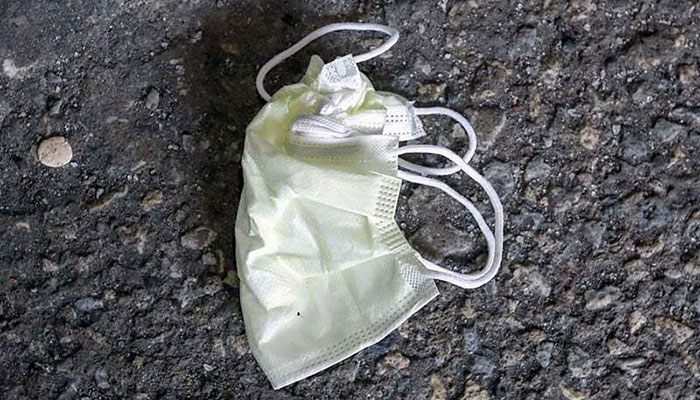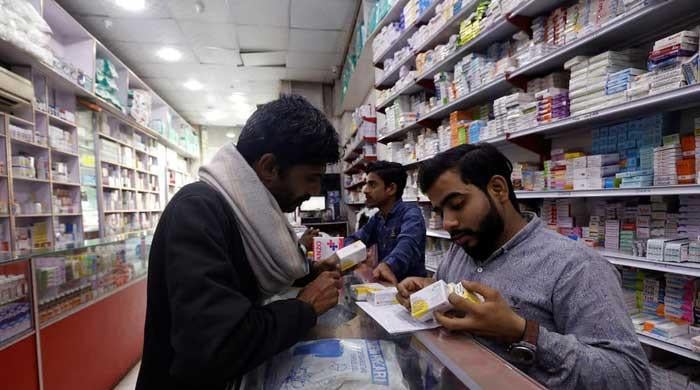Hospitals await guidelines on disposing of coronavirus medical waste
Hospitals across Pakistan are struggling to dispose of infected trash as no central guidelines exist on how to collect or recycle such garbage
April 15, 2020

With a surge in COVID-19 cases, since February 26 in Pakistan, there has been a huge rise in medical waste that could carry the novel coronavirus.
Hospitals across the country are struggling to dispose of infected trash, as no central guidelines exist on how to collect or recycle such garbage. In fact, medical-waste processors and sanitary workers are handling more disease-laden items in a day than anyone else.
“We need a special set of regulations for medical items, aprons, gowns, gloves, masks and goggles used in an isolation ward for coronavirus patients,” Dr Shoaib Niazi, senior vice president of the Young Doctors Association, told Geo.tv.
For now, he went on, due to the lack of clarity, doctors are trashing substances in red containers. These containers are routinely used to dispose of items which have human blood or fluid in them. After which, troublingly, the waste is gotten rid of as normal junk.
Since the deadly virus first emerged in the country, in February, Pakistan has been increasing its testing capacity. In a tweet last week, Dr Zafar Mirza, the special assistant to the prime minister on national health, said the country aims to increase its testing capacity from 6,584 to 25,000 per day.
Separately in Punjab, where the most number of tests are being conducted, at private and public health labs, the chief minister recently inaugurate a new diagnostic lab for the virus. It has also opened a new isolation ward of 1,000 beds in its capital city, Lahore.
The number of patients in the country is increasing and is now nearly 6,000. In the coming days, as testing ramps up, more infected could be detected, which means that the infrastructure to deal with the pandemic will also need to be expanded.
Still, there is little direction of what to do with the waste these patients are producing daily.
Dr Izhar Ahmed Chaudhry, the executive member of the Pakistan Medical Association (PMA), calls it “criminal negligence” by the state to ignore waste disposal at this critical hour. Hospital waste management systems are already overwhelmed, he adds.
Usually, medical waste is disposed of by burning it in incinerators installed at government hospitals. But in Lahore, the capital city, only four public hospitals have incinerators: the Lady Aitchison, Jinnah, Children’s Hospital and Ganga Ram Hospital.
Before the coronavirus pandemic, Lahore produced 17,400 kg of hospital waste daily. Of which, 3,000 kg would be sent to the Children’s Hospital for burning by the Lahore Waste Management Company (LWMC). The rest was tackled by private companies.
Roa Imtiaz, the managing director of the LWMC, told Geo.tv that his company has nothing to do with medical waste as of now. “We had an agreement earlier with the government to handle medical trash,” he said, “But that agreement expired on February 20.”











